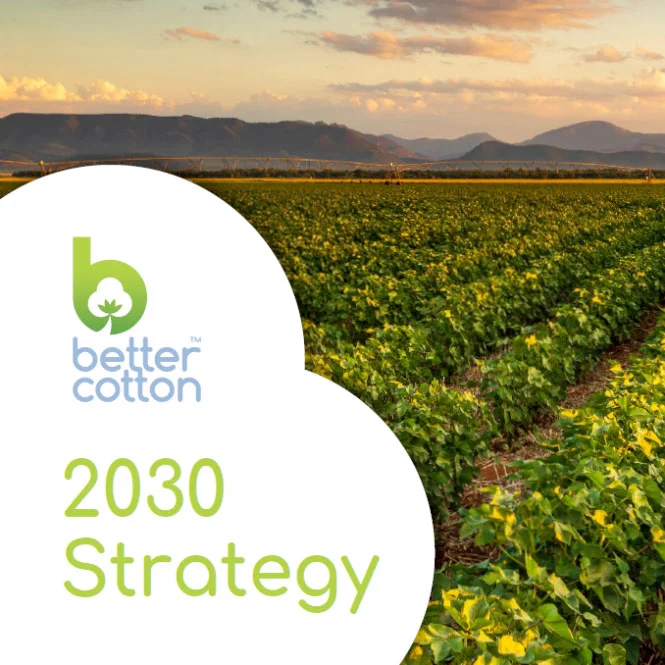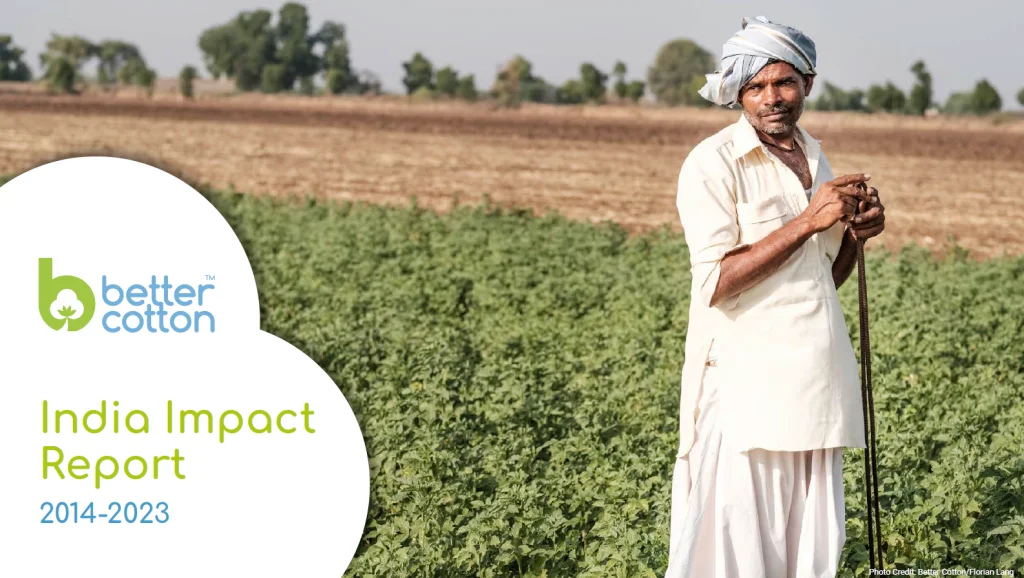- Who we are
- What we do
In just over 10 years we have become the world’s largest cotton sustainability programme. Our mission: to help cotton communities survive and thrive, while protecting and restoring the environment.
- Where we grow
Better Cotton is grown in 22 countries around the world and accounts for 22% of global cotton production. In the 2022-23 cotton season, 2.13 million licensed Better Cotton Farmers grew 5.47 million tonnes of Better Cotton.
- Our impact
- Membership
Today Better Cotton has more than 2,700 members, reflecting the breadth and diversity of the industry. Members of a global community that understands the mutual benefits of sustainable cotton farming. The moment you join, you become part of this too.
- Associate Membership
- Civil Society Membership
- Producer Organisation Membership
- Retailer and Brand Membership
- Supplier and Manufacturer Membership
- Find Members
- Member Monitoring
- Better Cotton Platform
- myBetterCotton
- Resources – Better Cotton Conference 2022
- Complaints
- Whistleblowing
- Safeguarding
- Get Involved in the Better Cotton Programme
- Thank you for contacting us
- Better Cotton’s Data Privacy Policy
- Log in
- Members’ Area
- Request for Proposals
- Better Cotton Cookie Policy
- Web Reference
- Measuring Cotton Consumption
- How to Implement the Chain of Custody Standard
- Resources – Better Cotton Conference 2023
- Certification Bodies Old
- Latest
- Sourcing
- Latest
The founding premise of Better Cotton is that a healthy sustainable future for cotton and the people that farm it is in the interests of everyone connected with it.
Let us help you find what you’re looking for
Results for {phrase} ({results_count} of {results_count_total})Displaying {results_count} results of {results_count_total}

Bottom row: Gregory Sampson, Solutions Architect at the International Trade Centre (ITC) (left); Josh Taylor, Traceability Manager at Better Cotton (centre); Jeremy Thimm, Organic Production Specialist at the Global Organic Textile Standard (GOTS) (right).
Better Cotton will this week participate in a panel discussion at the World Trade Organization’s Public Forum focusing on the topic of traceability within fashion and textile supply chains.
The session, titled: ‘Traceability as the Key Enabler for Improving the Sustainability of Cotton Value Chains’ will take place 15 September at the Centre William Rappard, in Geneva, Switzerland.
Jacky Broomhead, Senior Traceability Manager at Better Cotton, will moderate the discussion and will be joined by a panel including Maria Teresa Pisani, Officer-in-Charge of the United Nation’s Economic Commission for Europe’s (UNECE) Trade Facilitation Section; Gregory Sampson, Solutions Architect at the International Trade Centre (ITC); Jeremy Thimm, Organic Production Specialist at the Global Organic Textile Standard (GOTS); and Josh Taylor, Traceability Manager at Better Cotton.
Traceability will be discussed in the context of how it could benefit fashion and textile supply chains facing tightening due diligence legislation, in addition to investor pressure and changing consumer expectations around sustainability.
After two years of development, Better Cotton will this year launch its own traceability solution, capable of providing supply chain visibility for industry stakeholders. With this, cotton will be fed through new Chain of Custody models that monitor the flow of product throughout the value chain.
By logging transactions between stakeholders, fashion retailers and brands that purchase Better Cotton through its traceability solution will have oversight of their cotton’s country of origin, in addition to the proportion of Better Cotton in their products.
“This week’s Public Forum is a great opportunity to have an open discussion on the benefits and ramifications of supply chain traceability. Progress requiring the adoption of new technologies can run the risk of favouring large and developed organisations. We’re keen to collaborate with our peers to ensure these developments are scalable and inclusive for the benefit of the entire textile industry.”
Traceability will connect farmers to the supply chain and form the foundation for an Impact Marketplace Better Cotton is developing, through which farmers would be rewarded for their transition to more sustainable farming.
The panel discussion will explore the opportunity traceability holds to drive more sustainable cotton supply chains, the importance of alignment when scaling such solutions, and the need for accessible and inclusive approaches.


